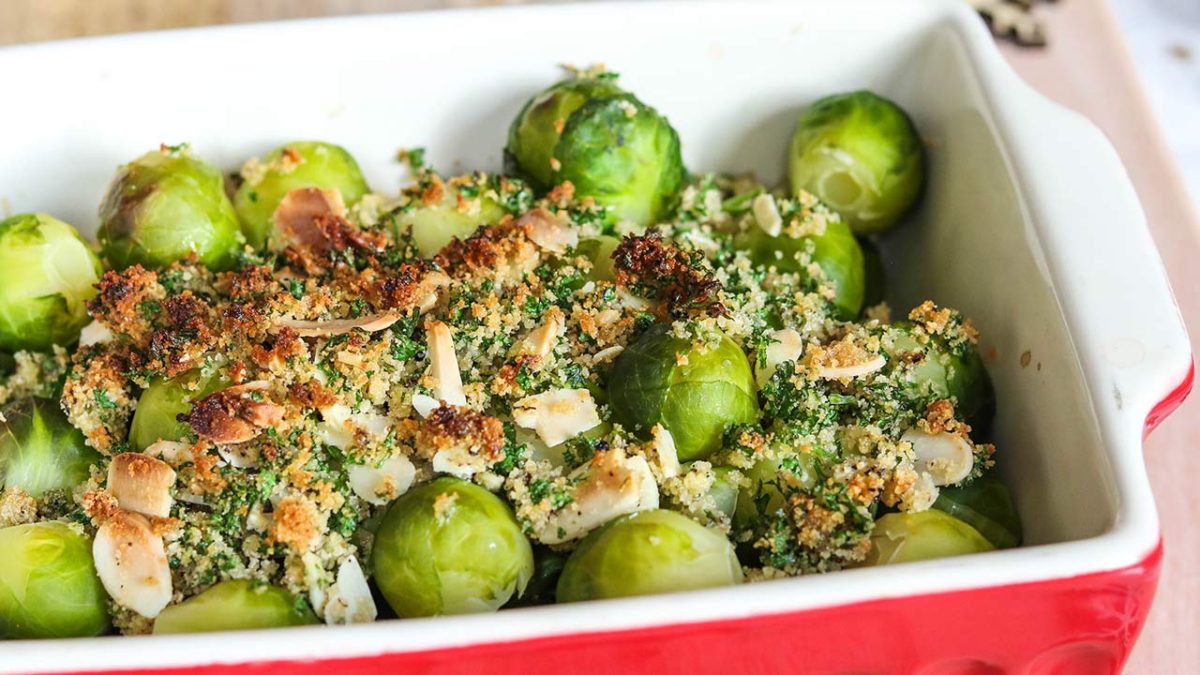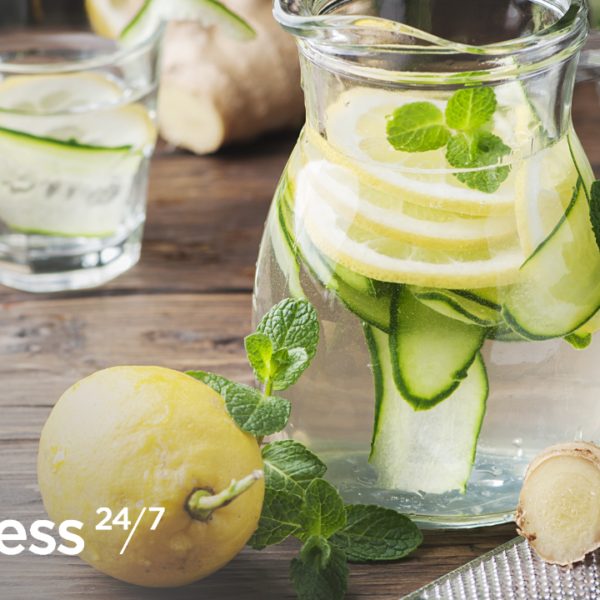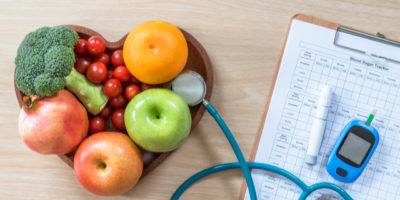Why are we so fat phobic? Good fats vs unhealthy fats
Good fats vs unhealthy fats. The experts are here to end the fat fear, for good! Find out why fats are good for you and which ones you should include in your everyday diet
A lot of us hear the word ‘fat’ and recoil in fear; the word itself seems to have gained a seriously bad rep.
When you’re in the supermarket, you may automatically pick up the ‘low fat’ variety of your favourite foods and if you’re hoping to lose weight, fat might be the food group you cut down on.
In fact, research by British low-carb snack brand Fatt found that a third of people would decrease their fat intake by 30 per cent in a bid to make their diet healthier.
the right kinds of dietary fats are actually vital for a healthy body and mind
However, the right kinds of dietary fats are actually vital for a healthy body and mind. Plus, despite 58 per cent of people believing that foods high in fat make you put on weight, the contrary is actually true.
GP Dr Sarah Brewer explains that unsaturated fats, found in foods such as nuts, seeds and olive oil, are filled with goodness.
She also adds that whilst the word ‘fat’ might conjure up the image of unwanted body fat, dietary fat is something altogether different.
So, why are we so fat phobic?
Although attitudes towards fat are (thankfully) starting to change, with 44 per cent of millennials agreeing that fat is in fact healthy, it seems that older generations are still struggling to follow suit.
A staggering 58 per cent of those born from 1928 to 1945 claim that fat is a negative word, with 55 per cent of baby boomers aged 55 to 73 agreeing.
GP Dr Sarah Brewer says that the older someone is, the more likely they are to shun fats.
‘Government dietary advice has previously warned consumers to cut back on fat, but instead of becoming healthier, we got fatter,’ states Dr Brewer.
‘Today, two-thirds of Brits (63%) are either obese or overweight. Indeed, only 6 per cent of people in the UK were obese in 1980, compared to 28 per cent today!’
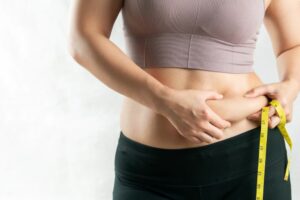
Fat is not the issue
The fact that fats contain more calories than carbs and proteins, will no doubt also play a part in today’s fat-phobic culture.
Whilst protein and carbs contain four calories per gram, fats contain nine. However, on the flip side, more than a third of people agree that they feel fuller for longer after eating food containing fat, so in essence, would likely eat less.
Although carbs can be a useful source of energy, Dr Brewer says that many people eat too much carbohydrate – especially added sugar – in the western world and we are now paying the price with obesity and, as a knock-on effect, type 2 diabetes.
many people eat too much carbohydrate – especially added sugar
‘Carbohydrates are usually fast release, low nutrition energy and they need to be balanced with the other two main constituents of a healthy diet; healthy fats and protein,’ explains Dr Brewer.
‘Many carbohydrate-based snacks can be low in nutrient density and high in available sugars, which can cause a spike in blood glucose levels,’ adds registered Dietitian Helen Grossi.
‘Over time, these spikes can lead to health issues, as well as weight gain and even hormone problems. Fats on the other hand do not cause these issues’.
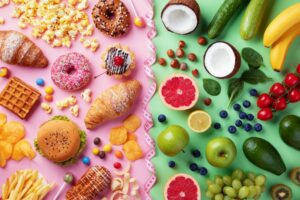
The health benefits of fat
Research by Fatt found that half of people don’t realise that the right kind of fat is essential for good health.
A fifth of people believe that the brain doesn’t need fat to stay healthy and alert, however, the right fats are actually crucial in supporting brain health and improving concentration.
‘Our brain is actually 60 per cent fat and to stay functioning correctly it needs a good supply of the long-chain omega-3 fatty acids, DHA and EPA – typically found in oily fish – on a regular basis,’ explains Dr Brewer.
Over half of those questioned were also unaware that fats can in fact boost energy.
good fats help balance hormone production too
‘Whilst proteins repair and carbohydrates give you energy, good fats actually do both; they give you energy and help repair your body and mind,’ reveals Dr Brewer.
As well as all these amazing benefits, good fats help balance hormone production too. Balanced hormone production is particularly prevalent in women and can help support the menstrual cycle and alleviate symptoms of PMS.
Good fats also help with eye health, they can reduce the risk of heart diseases, they support a healthy metabolism and they can help with weight loss.
‘No fats induce the fat-storage hormone, insulin, into your blood; only carbohydrates do,’ says Grossi.
‘You can in fact live very healthily if you cut carbohydrates from your diet, but not if you cut good fats’.
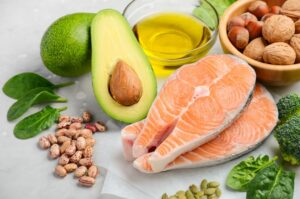
Good fats to enjoy and the unhealthy ones to avoid
It is the unsaturated fats we need to be enjoying, whilst cutting back on the saturated and trans fats which can be found in foods such as cakes, biscuits, crisps, fatty cuts of meat, butter, cheese and processed meat products such as sausages.
‘Unsaturated fats tend to be found in oils from plants and fish and they are either monounsaturated or polyunsaturated,’ explains Dr Brewer.
Opt for olive oil, rapeseed oil, nuts, avocados, chia and flax seeds as well as oily fish including sardines, salmon, mackerel and trout.
At mealtime, try to include a portion of good fats on every plate, to ensure your body is getting the healthy hit of essential fatty acids that it requires.
pt for olive oil, rapeseed oil, nuts, avocados, chia and flax seeds as well as oily fish
This fat will also help the body absorb fat-soluble vitamins such as vitamin A, D and E, which can only be absorbed with the help of fats.
When snacking, Grossi recommends choosing snacks which are low in available carbohydrate and high in fat and other nutrients as this can be a much better way of suppressing hunger.
There are plenty of great snack options out there but read the labels e.g. Fatt bars are 100 per cent natural snack option containing healthy fats, gut-friendly prebiotics, plenty of fibre and barely any carbs.
They are also loaded with vitamins and minerals whilst being free from sweeteners, palm oil, GMO, fillers, dairy and gluten.



